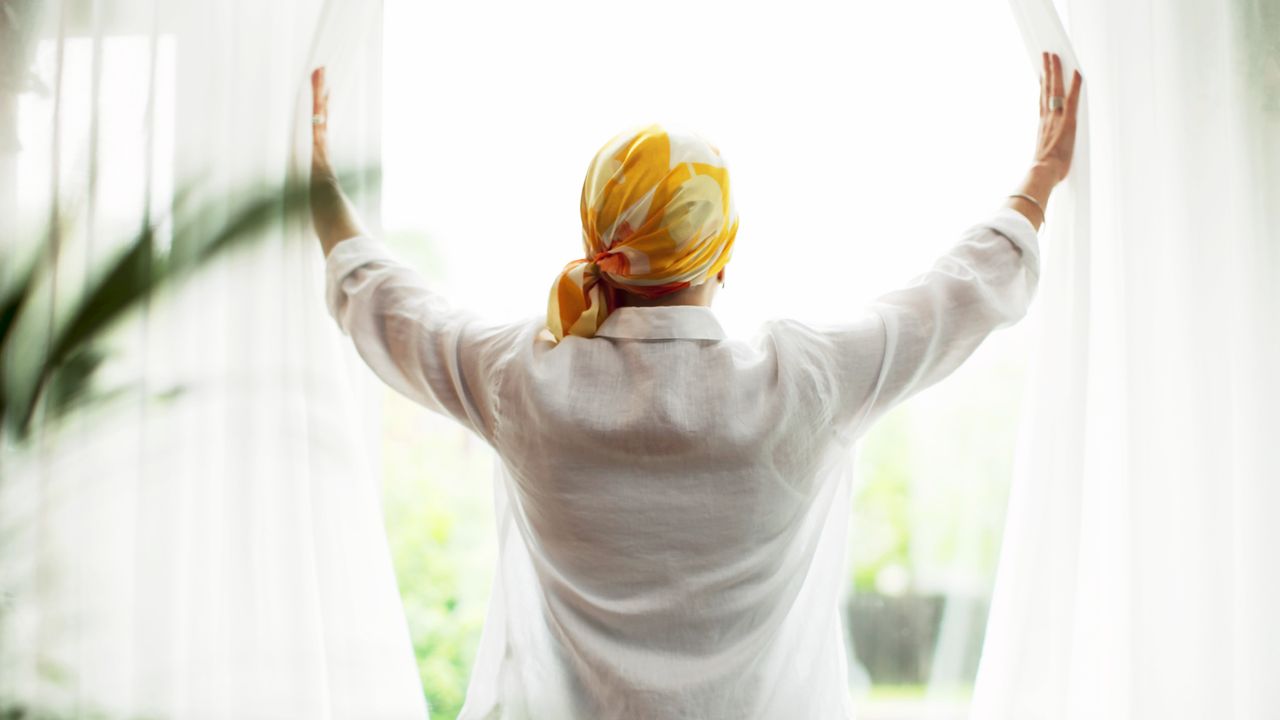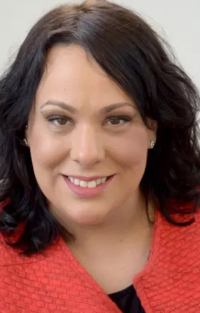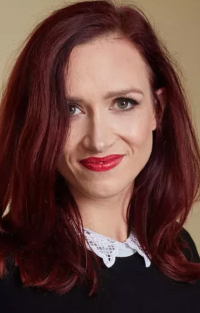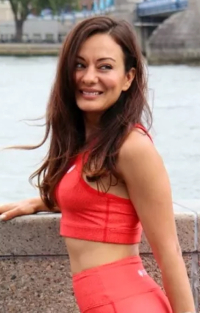4 women on their mastectomy recovery and how they handled the emotional fallout
Breast surgery can be tough on the body, but what about the emotional effects? We asked women to share their stories and spoke with experts for advice on how to navigate this difficult time


Mastectomy recovery is complicated, especially when it comes to handling the emotions that come with the procedure. We spoke to women about the emotional fallout following a mastectomy, as well as breast surgery experts, breast cancer nurses, post-surgery garment designers, to ask what can be done to prepare for the emotional experience and the physical recovery following the procedure.
Breast cancer is the most common type of cancer in the world, according to the World Health Organization. So much so that, one in eight women will be diagnosed with breast cancer in their lifetime. Attending regular screenings and carrying out self-checks is vital for prevention and luckily, when detected early, any potentially harmful changes to your boobs can be diagnosed and treated successfully. However, some people worry that waiting to spot the early signs of breast cancer might be leaving things too late.
Many women who discover they carry a BRCA mutation, are opting for preventative mastectomies to reduce the risk of breast cancer and any further treatment through chemotherapy, radiotherapy, and targeted therapy. Many public figures have had preventative mastectomies (Angelina Jolie, Julia Louis-Dreyfus, and Wanda Sykes to name a few), and have been candid about their own experiences. There are also lots of women in the spotlight who have opened up about their experience of having a mastectomy as part of their breast cancer treatment (such as Olivia Newton-John and Giuliana Rancic), with some opting for mastectomy tattoos to reclaim their bodies after the experience. But, when it comes to experiencing it yourself—it's hard to know how it will impact you.
Preparing for a mastectomy
Having a mastectomy can be a very overwhelming experience, however, it’s important to remember you are not alone," says Louise Spence, Specialist Oncology Nurse Adviser at Bupa UK "One of the most important parts of preparing for a mastectomy is preparing yourself emotionally."
"The process can understandably be an emotional journey,” adds plastic and cosmetic surgeon Paul Banwell, a Consultant Cosmetic Surgeon at The Banwell Clinic. “It has often been described as a rollercoaster ride for this reason. But careful explanations, support from family, and support from the breast cancer team and medical staff can minimize this significantly. In our experience, we know it's very important to vocalize fears and concerns beforehand no matter how large or small they may seem.”

When preparing for a mastectomy, the usual steps are:
- You'll meet with your surgeon to discuss the operation—you'll talk about the procedure, how the mastectomy will impact you both physically and mentally, and what will happen after the operation when you return to the ward. They will talk you through the type of mastectomy you're having, and whether there is an option for breast reconstruction. Some people opt for reconstruction right away, whereas some prefer to wait a while and many women embrace 'living flat', opting for no reconstruction at all (they may instead have mastectomy tattoos, nipple tattoos, or nothing at all).
- You may speak with a specialist breast care nurse—before a mastectomy, you may also spend time with a specialist breast care nurse to get practical advice on bras and bra inserts if you need them after your mastectomy. Your nurse is a great person to go to with any questions and concerns about life after the procedure and what to expect from your recovery.
- You may notice changes to your mood—in the weeks leading up to your operation, you may notice changes in your mood. You may feel relaxed and content one day and feel sad or angry at other times. "However, talking with family and friends or a healthcare professional about your feelings can help. Whilst they might not be able to change what you’re going through, they can help you to feel supported in the run-up to your operation and recovery journey," says Banwell. If someone you're close to has breast cancer, our round up of breast cancer gifts details some thoughtful ways to show you care and boost their mood.
Mastectomy recovery
- Physical mastectomy recovery—the actual physical recovery time is remarkably short following mastectomy. Usually, the insertion of drainage tubes limits mobility initially but once these are removed and patients have returned home, recovery can be swift. The wounds can be tender and the area will feel swollen but you will usually be physically healed within two to three weeks.
- Emotional mastectomy recovery—the emotional component is perhaps more long-lasting and can be difficult to judge. The biggest physical change is the asymmetry that ensues following mastectomy and physically coping with the 'emptiness'." says Banwell. According to experts and breast cancer survivors, there are several steps you can take to minimize any discomfort and support your recovery, especially when it comes to your emotional recovery.
How to navigate your mastectomy recovery emotionally
1. Find your community
Mental preparation can really help with maintaining your sense of calm, self and processing the emotions you may feel in relation to your procedure. But you might not always have as much time as you’d like to prepare yourself. To help you to cope with this, communicating your fears and feelings to others, be that people going through the same experiences, health professionals, friends, or family, is a must. Keeping your lines of communication open can help to dissolve fear and anxiety and help you to mentally prepare for the weeks of recovery that lie ahead.
Sign up for the woman&home newsletter
Sign up to our free daily email for the latest royal and entertainment news, interesting opinion, expert advice on styling and beauty trends, and no-nonsense guides to the health and wellness questions you want answered.
Paula Sherriff, a UK politician, and health campaigner had a mastectomy in 2020.
“I was actually given nine days notice of my mastectomy so I’m not entirely sure I had managed to get my head around it. I was fairly calm until I walked into the hospital that morning,” says Sherriff. “On waking up after my three-hour operation, I remember asking the nurse, ‘has it gone?’ I was referring to cancer. I was surprised to feel such little pain and only stayed overnight in the hospital because I'd had a general anesthetic and lived alone.
"That evening [in the hospital] my drain became blocked and I started losing a lot of blood. I was scared of having to go back into theatre but thankfully that wasn’t necessary. It transpired that the lady in the bed next to me had grown up in the same town as me and we were up most of the night, reminiscing about mutual friends and eating sweets," says recalls Sherrif. "My overwhelming emotion at that time was a relief and a sort of weird euphoria that this alien in my body that was trying to kill me, was gone. My advice to anybody having a mastectomy would be to surround yourself with good friends and remember—not everyone heals the same way.”
2. Talk about it
Eleanor Howie, a breast cancer survivor and the founder of Valiant Lingerie.
“I think there are so many aspects to post-surgery recovery,” says Howie. “For me, I had mentally prepared myself for the physical recovery but what really hit me was the psychological and emotional recovery. I think people will experience this differently and there’s definitely no right or wrong way to feel. I found it difficult and I felt like I was grieving. My self-esteem and confidence disappeared overnight. And I felt really isolated. But you don’t need to try to cope on your own," she adds.
"I was lucky because my mum had had a mastectomy and knew what I was experiencing. But if you feel isolated too, there are lots of charities and organizations out there who are doing great things to support people recovering from surgery. If you don’t know where to look for help, try to speak with your doctor or breast nurse and call a breast cancer charity helpline.”
Emma Guy, an author, acupuncturist, and UK breast cancer campaigner.
Guy felt prepared for what was in store when she received her diagnosis, having treated so many women going through breast cancer. But she says she was still frightened and her support network was essential to her recovery.
“Recently, someone asked me what is the best thing they can do for their sister, who had just gone through a mastectomy,” she says. “I simply told her to be there. To be available to chat, bring food round, make her cups of tea, and not be afraid of cracking jokes. What she won’t have lost is her sense of humor. Recovery is as much about how your mind processes what has happened as it is your body recovering physical strength. The best support you can give anyone going through breast cancer is just being there to talk.”
3. Prepare your home
Organizing your home will help make things a little easier after your operation. Some people like to get ahead with cooking and meal preparation, move things around to make them more accessible, and do little things like adding extra cushions to couches and beds for better support.
Susanna Barrett, Echelon Instructor and breast cancer survivor
“Depending on your family situation, arranging childcare for school runs and solutions for meal preparation helps. It really is essential to have a support network around you as daily tasks will be difficult, even lifting a cup of tea and opening doors are hard work, not to mention washing your hair,“ says Barrett.
"Remember to do the physio exercise given every day as the sooner you start the quicker you will recover. Make space for this in your home so you feel comfortable doing it," Barrett adds. "Being a fitness professional, I panicked thinking I would never get my full range of movement back, but I did. It just takes time so be patient. You've shown huge courage and resilience to get to this point so be kind to yourself, be realistic about recovery time and don't be afraid to ask for help, you will get there.”
4. Consider your clothing
From a functional point of view, people who have had breast surgery for breast cancer treatment or prevention, have specific requirements for their lingerie and clothing after surgery. "Bear in mind it will be extremely difficult to raise arms above your head for a couple of weeks so open-fronted bras and shirts are best," advises Barrett.
Lingerie
When it comes to post-mastectomy bras, underwires are a no-no and you'll need super-soft fabrics and carefully placed seams to avoid irritating scars and sensitive skin. You may also need designs that take the risk of lymphedema into account or you may need pocketed cups for breast prosthesis and padding.
Howie of Valiant Lingerie found wearing post-surgery garments can be demoralizing for some, which is why she decided to prioritize aesthetics when designing her mastectomy range. “When I was designing, it was of the utmost importance that the designs were sensitive and accommodated post-surgery bodies," she says. "But it was equally important that the designs looked amazing too; that they didn't just look functional. And that really is what I aim to do; create beautiful post-surgery bras and panties designed for all bodies.“
Loungewear
Something many people don't realize about recovery is that the body is working extra hard to fight infection. For this reason, it's important to support it by regulating your temperature and staying clean and dry. Cucumber Clothing creators Nancy Zeffman and Eileen Willett found that their sustainable loungewear was beloved by women recovering from surgery and those going through menopause because of the brand's focus on fabrics. Super-soft, thermoregulation, and moisture-wicking, garments like those from Cucumber are worth investing in ahead of your recovery period to ensure your body can rest and heal in the best way possible.
"Mentally, the biggest problem was the fact that my body had changed forever," says Emma Guy of her experience of mastectomy and immediate reconstruction. "I was plunged into surgical menopause aged 46. Literally, overnight, the hot flushes happened. Even though I’d treated hundreds of women going through breast cancer, and they had told me it messes with your mind, nothing can prepare you for just how much.”
5. Be kind to yourself

'Be kind to yourself' is the resounding advice from those who've experienced mastectomy recovery and it's worth remembering. When you're not in the company of your community or support network, relying on yourself is what you're left with, so taking good care of yourself is paramount for a healthy physical and emotional recovery.
- Focus on the things that bring you joy—find the little things that bring you joy, that you can continue to implement after your mastectomy. Whether this is enjoying a morning coffee, reading a book, exercising, cooking or time spent with pets, it’s important to continue to practice the things that make you feel content. Advises Bupa UK Nurse, Louise Spence. If exercise is usually a key part of your day, it's important you avoid strenuous exercise during your recovery but continue to do the arm exercises your doctor gives you after surgery.
- Try alternative forms of therapy—many people opt for acupuncture to improve sensation and muscle recovery after a mastectomy. Yoga for beginners is also a great addition to the physio exercises your doctor will recommend. Somatic therapy, reiki, tripudio, and meditation are also popular with breast cancer survivors as they focus on processing energy and emotions in a controlled way and can improve mood, movement, and encourage a positive mental attitude and sense of control.
- Prioritize your mental health—CBT and talking therapy are great ways to help make sense of your thoughts and get a handle on your emotions. Post-surgery, things can feel very overwhelming, especially if you're experiencing feelings of loss and low self-esteem. Seeking out a therapist and arranging an introductory visit is an important first step after surgery. If you're wondering how to find a therapist or if this isn't convenient for you, try online therapy apps like BetterHelp, Bloom, and Myonlinetherapy and arrange online chats, video meetings, or a phone call at a time that suits you. Many online services are also compatible with health insurance so look online and find something that will work for you.
- Seek out support groups—Support groups are also a great mental health resource. Your chosen breast cancer charity will signpost any that are close to you, or you can simply search for support groups close to you online. Many of these are informal meets or conversations with like-minded people who have had similar experiences. Chatrooms and Facebook groups are also a good place to start if you're seeking community support.
- Nourish your body—Staying healthy and nourishing your body is essential after a mastectomy. A balanced diet rich in fruits, veggies, and foods that are high in Zinc, Vitamin E, and Vitamin C is great for recovery. Foods high in antioxidants and anti-inflammatory foods will encourage healthy cell turnover and help you to heal quicker. It's also a great idea to use sports recovery methods such as magnesium baths—once your wounds have healed—foam rollers for your muscles and massage. Remember your body has been through a lot and it needs care and attention.
Life after mastectomy
Life after a mastectomy is what you make it. Many women have embraced living in new ways with new bodies, but the emotional impact of losing one or both breasts can be confronting and difficult to deal with at times. It's important to remember that recovery doesn't cover a set time period. Recovery is anything that comes after a traumatic event so don't expect to feel perfect after six months. You will always be connected to who you were before surgery and who you are afterward is a work in progress.
Connecting with others who’ve had a mastectomy or are going through the same journey can help you to feel supported and part of a community and joining local support groups or online communities of women who’ve had a mastectomy can help you to connect with others going through a similar experience as you, which helps with normalizing feelings about the experience.
“Even now, some 17 months on, I cannot bear to look at myself straight-on in the mirror if I’m not wearing a bra. It upsets me too much.“ says Paula Sherriff. “For me, a reconstruction is an option but it isn’t simple. It will likely be five operations including a muscle transplant from my back. I wear special mastectomy bras so I can use a prosthesis but it’s heavy and uncomfortable.
"I recently went to a shopping center near my home in an attempt to buy a new bra. I tried five shops and not one stocked a single post-surgery bra, I was horrified to be told in a specialist high street lingerie store that it was a ‘niche’ line. I don’t feel as feminine as I used to, and clothes fit so differently. But I’ve joined a local group of women, all of whom have experienced breast cancer. We go walking, go out for dinner and do other activities. It really helps as they ‘get it’. We support each other, particularly as my experience is that we go through highs and lows even after treatment has finished. Cancer seems to be very adept at stealing your peace of mind.”
The idea of loss is something that many people describe. Loss of a piece of the body, loss of identity, loss of femininity—it's totally normal to grieve. And remember that this looks different for everyone. What's important is staying body aware, staying grateful for who you are and what you have, and staying present in the moment while you are grieving. Check-in with your body and your emotions daily and allow yourself to experience your feelings fully and without shame.
"For me, and many other women, the moment you are told ‘you are cancer free’ and don’t need any more treatment, is both liberating and frightening," says Emma Guy. "Mentally, you still worry about every ache and pain you get, and being able to talk to someone about that is crucial. This is one of the main reasons I agreed to become an Ambassador for Prevent Breast Cancer, as I want to share my experiences as widely as I can with women faced with the same diagnosis and to tell them, you’re not alone. There are people who can and will help you."
Different types of mastectomy procedures
A mastectomy is an operation to remove one or both breasts and is used to treat or prevent breast cancer. A doctor may recommend a mastectomy if cancer is in a large area of the breast, cancer has spread throughout the breast tissue or a lot of pre-cancerous cells are discovered in the breast and the surrounding areas, (such as the armpits and chest). Many people also opt for what's known as a preventative mastectomy. This is a big decision and takes a lot of courage but is a potentially life-saving procedure that reduces the risk of breast cancer developing.
“A mastectomy is a significant surgical procedure whereby the breast tissue underneath the skin 'envelope' of the breast is removed,” says Paul Banwell. “It takes place under a general anesthetic and may be performed as a 'nipple-sparing' or 'skin-sparing' operation but commonly, the nipple needs to be removed. In addition, for some, the removal of lymph nodes may also be necessary as part of the mastectomy process as a so-called 'adjunctive procedure'.”
There are five different types of mastectomy:
- Standard mastectomy—all the breast tissue and most of the skin covering the breast and the nipple are removed.
- Skin-sparing mastectomy—all the breast tissue and the nipple are removed, but most of the skin covering the breast remains.
- Nipple-sparing mastectomy—all the breast tissue is removed, however, the skin covering the breast and the nipple remains.
- Radical mastectomy—all the breast tissue, skin covering the breast, the two muscles behind the breast, and the lymph nodes in the armpit are removed. This is a very rare form of mastectomy.
- Modified radical mastectomy—like a radical mastectomy, however, the large muscle behind the breast remains in place.
w&h thanks Paula Sherriff, Eleanor Howie, Emma Guy, Susanna Barrett for sharing their experiences.
Many thanks to Louise Spence, Specialist Oncology Nurse Adviser at Bupa UK, and Plastic & Cosmetic Surgeon Paul Banwell for their time and expertise.
Emilie Lavinia is a writer, entrepreneur and women’s wellbeing advocate. She is passionate about femtech, closing the gender health gap and campaigning for education and transparency across mental, physical and sexual health. Emilie presents All Being Well – a series that investigates the concept of wellness, good health according to experts and what it means to ‘be well’. She has a decade of experience as a journalist, editor and brand strategist and is the founder of four separate organisations that champion women’s health, marginalised communities and LGBTQ+ people.
-
 Missed out the first time around? Fashion editor favourite A.W.A.K.E. Mode is back with another John Lewis collection
Missed out the first time around? Fashion editor favourite A.W.A.K.E. Mode is back with another John Lewis collectionShop this collection online and in-store now
By Molly Smith Published
-
 Maxi skirts are the new midi dresses and Queen Mary’s floral design is utterly eye-catching
Maxi skirts are the new midi dresses and Queen Mary’s floral design is utterly eye-catchingQueen Mary’s floral skirt has convinced us that maxi skirts are a brilliant alternative to midi dresses for spring and summer.
By Emma Shacklock Published




